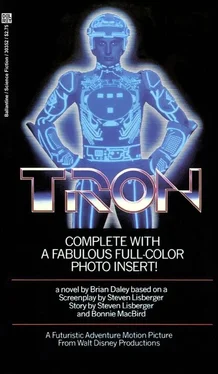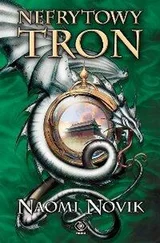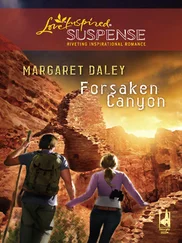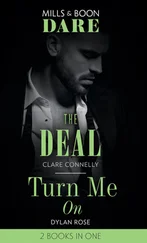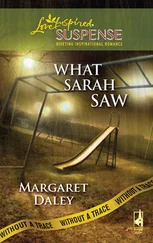They made their good-byes to one another and Gibbs went offto ponder what he’d accomplished and what his obligations were. Perhaps it was time to have a talk with Ed Dillinger.
Walking with Alan beside the towering frame, Lora asked, “Did you say Group Seven access?”
His answer was distracted as he worried at the problem. “Yeah. Pain in the neck; you know, I was all set—”
“Did Dillinger say why?”
His faced worked in irritation. “Something about tampering.”
“Tampering?” she echoed. The phrase meant much more to her than it did to Alan. Into her mind came the image of Flynn—Flynn the master crasher, system-bucker, and hot-head. She knew it was time to bring up a subject they usually avoided.
She stopped Alan. “Flynn’s been thinking about breaking into the System ever since Dillinger canned him. And he had Group Seven access.”
Anger had taken away all the pleasure that usually showed on his face when he was with her. “Flynn had access to you, too. I’m not interested in talking about him.” He didn’t like himself when he was like that, but he cared so much for Lora that it was hard not to feel jealousy. I’m not as flamboyant as Flynn, he realized, not as breezy, but I know that she loves me. Still…
“Oh, I wish you’d forget about that,” Lora was telling him. “It was all so long ago.” She was emphatic about it, to herself as well as to Alan—perhaps too much so. “I’ve totally gotten over it.”
Alan relented, faulting himself for being so defensive about Flynn. Jealousy over the time she’d spent with him could only mar his and Lora’s feelings for one another. “Okay, okay; c’mon, let’s get out of here.”
They made their way to where her black van was parked in the ENCOM lot. When they were underway, Lora drew a deep breath and said, “I want to go to Flynn’s place.”
Alan turned, saw streetlights and headlights play across the lovely face as she stared directly ahead. “You call that ‘getting over it’?” He knew an abrupt fear, that he might be in danger of losing her. He cast it out at once, unable even to consider it.
“I mean, I want both of us to go.” She angled the van down an on-ramp and merged with the traffic deftly.
“What for?” Try as he might, he couldn’t keep a skeptical note out of his tone.
“To warn him.”
She was checking the road signs overhead, and Alan saw that she’d already put the van on course for Flynn’s place. He sat back in his seat, folding his arms across his chest. “Of what?”
“That Dillinger’s on to him.” She guided the van onto a cloverleaf.
“I don’t know what you ever saw in him anyway,” Alan asserted, but it wasn’t true. He’d paid close attention to what she’d said and what her expression had hinted at, ever since they’d met. He knew that one side of Lora resisted the constraints of employment at ENCOM, while another, stronger, drew her to her work. And Flynn had appealed to that first side. Devil-may-care Flynn had embodied the tempting idea that rules were what you made of them, and impulses were there to be followed if you so pleased. And, though he wouldn’t have phrased it that way to himself, Alan was too much his own man to try to emulate Flynn, even for her.
“I never saw that much in him,” she parried, finishing silently, not the things I see in you, the things I need!
“Oh?”
Exasperated, she burst out, “I loved him for his brains!” But she couldn’t keep a straight face, and dissolved in laughter.
“Hah!” Alan barked at her, a parody of disbelief, half breaking up as well. The tension was suddenly gone; all her affection showed when she glanced back to him again. Lora didn’t doubt that it was Alan she loved; he had the sort of strength and constancy she needed and understood.
It was just difficult not to envy someone like Flynn, who lived for fun—and not to want to share in that fun, sometimes. She and Flynn had been drawn to one another, for a time, by what Flynn had laughingly called their algorhythms .
She drove to an older section of town, where brown and gray stone buildings crowded close together. Lora braked the van and parked across the street from an island of noise and light in the middle of the district. It was the largest and most popular game arcade in the city, its doors flung wide open. Over the entrance, a glorious boast in red neon, a sign proclaimed in beacon letters, FLYNN’S, lighting the entire block. This was, in fact, Flynn’s old neighborhood, and whatever other reverses he may have suffered, his place was now its landmark. HOME OF SPACE PARANOIDS, declared a second sign.
Within, figures played before the disorderly ranks of videogames or drifted from one to the next, or waited to use some particular favorite. Lora locked up the van and she and Alan entered. Alan saw that the walls of the place were decorated with supergraphic-size murals of computer chips, micro-processors, and circuitry. There were also neon signs advertising Code Wars , Nerve Net , Gonzo , and others. Flynn’s was chockablock with games of all sorts and those who loved to play them.
Within the microcosms of the games, all was competition, with no reconciliation possible. Tanks prowled across three-dimensional landscapes, relentlessly eager for firefights. Untiring image-athletes contended, their rivalry absolute. Spacecraft did battle and aliens invaded, with only the briefest of occasional cease-fires and absolutely no chance of truce or treaty. Asteroids tumbled, and threatened starships, malevolently aware . The creators of these games had been lavishly inventive, to evoke excitement and demand concentration and coordination from players.
The air was filled with the noises of the diverse machines. Their scoring tones sounded, and the challenges and taunts some of them threw at their human competitors. The beeps and deep tones of victory and defeat came endlessly. Death knells and dirges sounded as players lost a last spaceship or tank; explosions, warp-drives, six-guns, missiles, energy beams, all to the constant tapping of firing buttons. There was the rapid working of controls of all types: steering wheels, levergrips, joysticks, foot pedals, and periscopes.
Even at that hour the place was crowded. Most of the clientele was young, adolescents and young adults of both sexes. Their attire showed every taste from high preppy to gang colors. Older men and women were present as well, mingling amiably with the younger players, many of whom exhibited fearsome skill with the games.
Other, smaller arcades, of course, were scattered through the city, and games could be found in convenience stores or taverns or soda fountains. But if you wanted your choice of the newest and best machines, if you wanted to be among the best players in town, you went to Flynn’s.
And if you wanted to play against the best, you played Flynn himself.
Alan and Lora moved past little knots of two, three, and four people who, oblivious to them and to everything else but the machines, strove heroically at Intruder or Zero Hour . Two girls had rolled up an impressive score at Tailgunner. Alan took it all in, listening to the cheering as a kid who could barely reach the controls demonstrated expertise at Galaxy Wars . He peered over the shoulder of a young man turning in an excellent performance as an electronic gunfighter.
And on and on, past Asteroids Delux , The End and all the rest, Lora and Alan moved through the swirl of happy, strangely determined players amid the glare of the lights and the variegated game screens. Flynn’s seemed some technological fantasy palace. They came to a girl sporting a junior high school cheerleader’s jacket, who watched as her companions tried their luck at Battle Zone . One was working the lateral grips, blowing away tanks and saucers and buzz-bomb missiles.
Читать дальше
